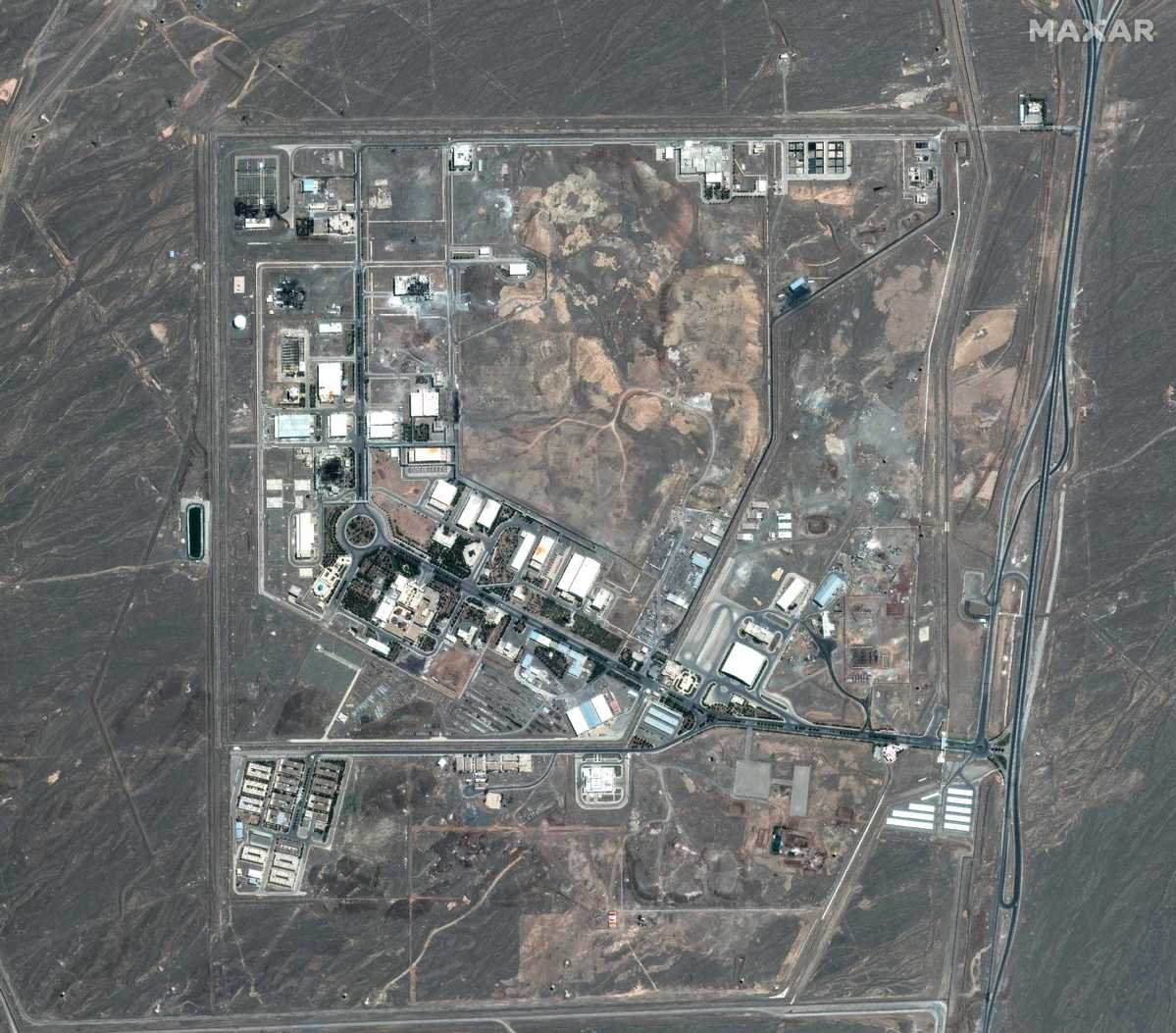IAEA chief confirms radiological contamination within Iran's atomic energy facilities


Radiological and chemical contamination has been confirmed within the Natanz nuclear energy facility in central Iran, the chief of the United Nations' nuclear watchdog said on Monday.
Rafael Mariano Grossi, director-general of the International Atomic Energy Agency, or IAEA, told its board of governors in Geneva that the main concern inside the facility is the chemical toxicity of the uranium hexafluoride and fluoride compounds generated on contact with water.
The IAEA board convened an urgent session at its headquarters on Monday to discuss the repercussions of Israeli military attacks on Iran's nuclear facilities.
"Within the Natanz facility, there is both radiological and chemical contamination," Grossi said. "Considering the type of nuclear material at this facility, it is possible that uranium isotopes contained in uranium hexafluoride, uranyl fluoride and hydrogen fluoride are dispersed inside the facility. The radiation, primarily consisting of alpha particles, poses a significant danger if uranium is inhaled or ingested.
"However, this risk can be effectively managed with appropriate protective measures, such as using respiratory protection devices while inside the affected facilities," he added.
On Friday, the Israel Defense Forces, or IDF, said the airstrikes had targeted a multi-storey underground enrichment hall, containing centrifuges, electrical systems, and other critical infrastructure. It added that key components enabling the continued operation and advancement of Iran's alleged nuclear weapons program were also hit.
"The close cooperation between the IDF's Intelligence Directorate and the air force resulted in significant damage to the site," said a statement.
Grossi said that the good news was that the radioactivity level outside the Natanz site "has remained unchanged and at normal levels", indicating no external radiological impact on the population or the environment from this event.
However, the loss of power to the cascade hall may have damaged the centrifuges at Natanz. No damage has been seen at the site of the Fordow Fuel Enrichment Plant or at the Khondab heavy water reactor, which is under construction.
But four buildings at the Esfahan nuclear site were damaged in the attack - the central chemical laboratory, a uranium conversion plant, the Teheran reactor fuel manufacturing plant, and the UF4 (uranium tetrafluoride) to EU metal processing facility, which was under construction, he said.
This is the second time in three years the world has witnessed a dramatic conflict between two IAEA member states in which nuclear installations have come under fire, and where nuclear safety is being compromised.
"The IAEA, just as has been the case with the military conflict between the Russian Federation and Ukraine, will not stand idly by during this conflict," the IAEA chief said, acknowledging the cooperation and exchange of information between the Iranian authorities and the IAEA.
During a news conference in Vienna earlier this month, Grossi said information Iran claimed it had seized regarding Israel's nuclear program "seems to refer" to the country's Soreq Nuclear Research Center, the first acknowledgment outside of Teheran of the case.
Military escalation threatens lives, increases the chance of a radiological release with serious consequences for people and the environment and delays indispensable work towards a diplomatic solution for the long-term assurance that Iran does not acquire a nuclear weapon.
"There is always time and there is always a place for diplomacy," he said.
Iran has been pressing ahead with its peaceful nuclear program that draws its legitimacy from the UN Security Council Resolution 2231, despite Israel's recent military strikes, a spokesperson for the Iranian Foreign Ministry said.
In comments the media in Teheran on Monday, Iranian Foreign Ministry Spokesman Esmaeil Baghaei lashed out at the Israeli regime for setting a dangerous historical precedent by attacking Iran's nuclear facilities, according to Iran's Tasnim news agency.
He said the Israeli aggression against Iran's nuclear sites has harmed the Nuclear Non-Proliferation Treaty.

































